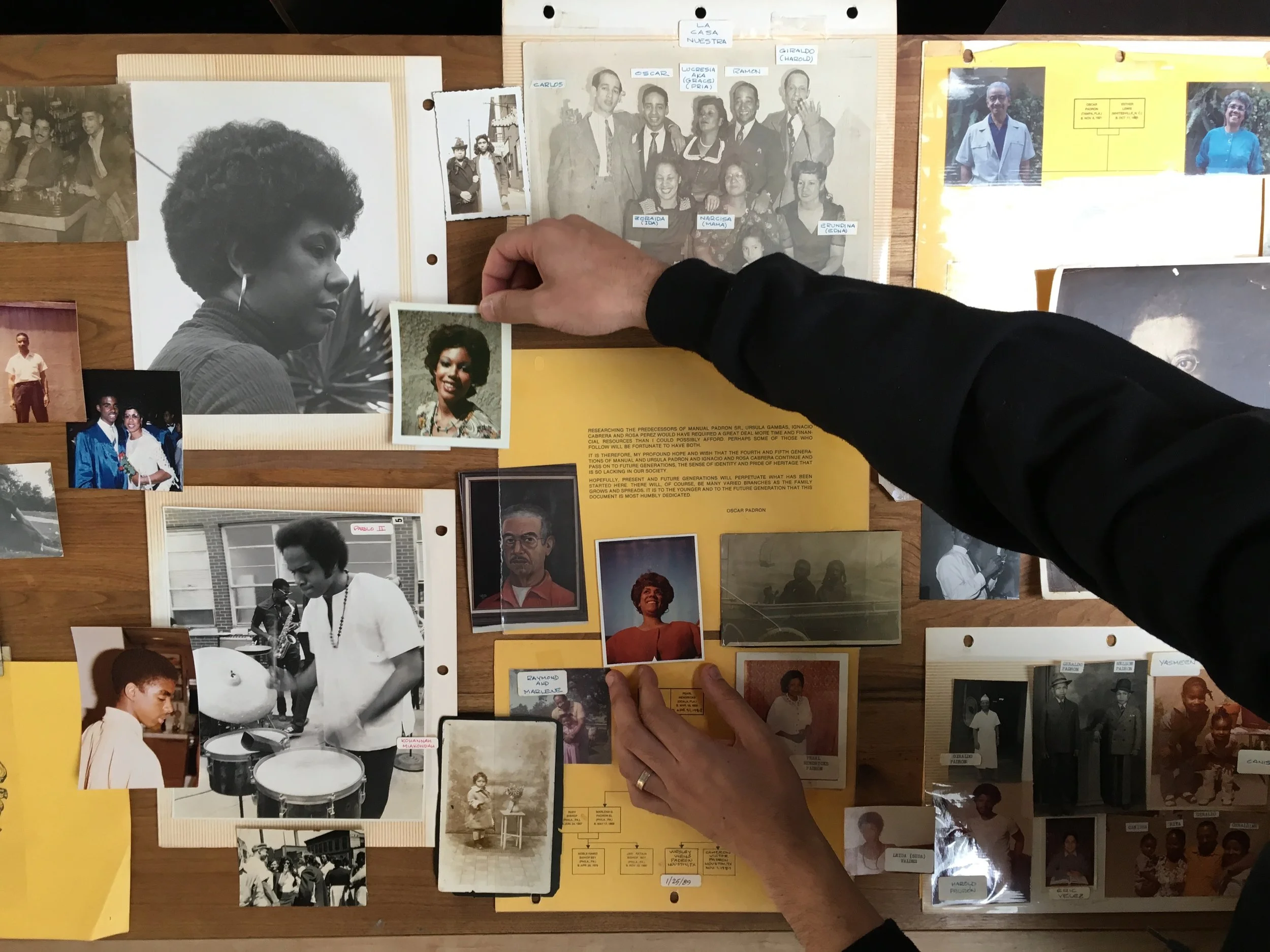REQUEST FOR PROPOSALS: COUNTER HISTORIES, ALTERNATIVE NARRATIVES
Magnum Foundation fellow Christian Padron works with his family archive in a project describing the Afro-Cuban American experience in New York. Photo by Liz Sanders.
In partnership with the Brown Institute for Media Innovation and the Fledgling Fund, Magnum Foundation will offer a two-day experimental laboratory for photographers, artists, academics, media professionals, and other practitioners using photography in their work.
In this lab, we will explore strategies for applying new digital tools to challenge the status quo, question official histories, disrupt power structures embedded in archives—and explore the radical possibility of alternative narratives.
Counter Histories, Alternative Narratives is part of Magnum Foundation’s Photography Expanded, an initiative that aims to expose documentary photographers to new tools and approaches, as well as encourage interdisciplinary collaboration and innovation in storytelling on social issues.
Applications
Applicants for the lab should propose photography-based projects that activate archives, reframe histories, respond creatively to existing images, disrupt static structures of image collections, and/or bring layers of visual narratives into our contemporary experiences and environments. Proposed projects can be an ongoing or in an initial idea-stage for future work. There is no technical experience required to apply.
All are welcome to apply. We want to create a diverse group of participants for this laboratory. We especially encourage applications from individuals who are part of racial, gender, sexual, ethnic, or religious minority groups, and others whose authorship is unevenly represented within the field of documentary photography.
About the Lab
With guidance from creative technologists and designers, lab participants will develop their projects and explore emerging techniques for layering of story and experience and merging of real and digital worlds. Through demonstrations and hands-on exercises, participants will learn about augmented reality, mixed reality, geo-locative media, and other interactive and immersive technologies.
The laboratory is free for up to fifteen selected participants. For applicants based internationally or outside New York City, there will be opportunities to apply for travel funding.
Dates
Applications due:
Feb 15, 2018
Participants notified:
March 15, 2018
Two-day laboratory:
April 16–17, 2018
Guiding Questions:
- How can we engage with existing photographs to shift the frameworks of representation? What happens when we disassemble and re-appropriate colonial archives, newspaper archives, museum archives, or other existing collections? Can we play with shifting the meaning/s of an image as it transits across time and space, from past to the present, present to the future, from one geographic or temporal context to another?
- How does an image’s meaning and reception change according to its environment or geographic position? Can the repositioning of an image create new productive tension around its meaning? What happens when images are positioned as layers on top of our lived environments?
- Have you created a body of work in the past that would gain new meaning if it was re-situated? Re-contextualized? Remixed?
- How can we look critically at the ways in which institutions, countries, cultures, religions and others bring order to collections of images? How can we creatively subvert “official” systems of archiving, classifying, and organizing?
- How can we use strategies of gaming, participation, and interactivity to engage with social issues or promote social justice?
- What if we engage with images that are not necessarily meant to be consumed as a typical documentary narrative; satellite imagery, forensic imagery, archaeological imagery, or other photographic sensory data that may be produced, collected, and organized by non-humans?
- Can we imagine an archive of the future? Perhaps it’s a speculative archive that becomes a synthesis of the known and unknown and brings us new perspectives on our past? Or a radical imagining of a liberated future for those who feel the deepest impacts of systemic power imbalances?

